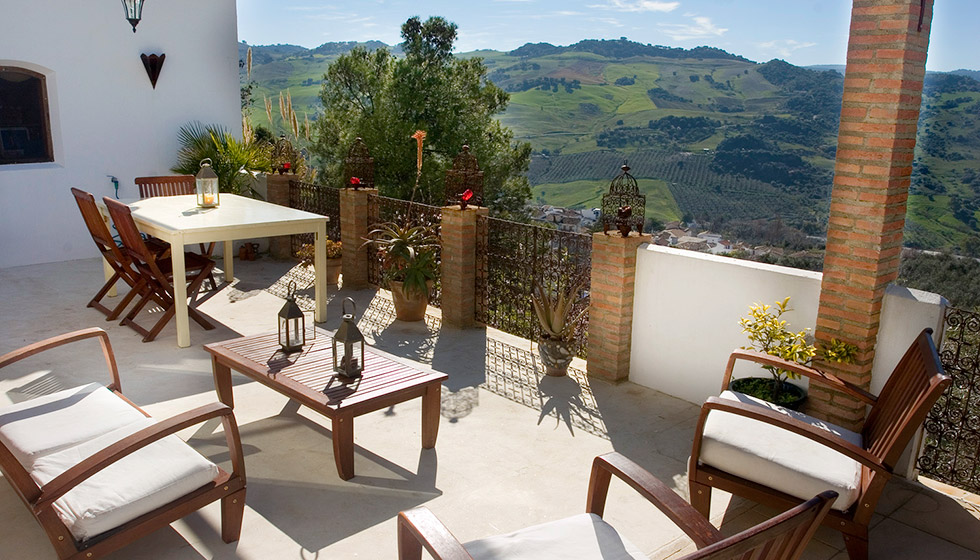It’s always handy to know a few phrases in the local lingo when you’re on a foreign holiday. And in the ‘old normal’ that might have been knowing how to order food and drink, saying pleasantries and asking for directions. But in this strange new world of travel it might also be helpful to learn how to ask for things like face masks and hand sanitiser, or even to urge people to keep their social distance from you on the beach.
With a third (35%) of Britons already keen to go abroad*, and given that travel between the UK and several countries has been opened up, home swapping site Love Home Swap has today launched a series of free online language learning ‘tapes’ – each containing bitesize coronavirus-related foreign phrases it believes will be useful for British travellers to listen to and learn this summer and beyond.
Inspired by language learning cassette tapes of old, holidaymakers can head to SoundCloud and choose to listen to several phrases translated from English into languages of popular foreign holiday destinations. Currently, Love Home Swap has created online phrase tapes for Spain, France, Greece, Italy and the Netherlands – but intends to add more as additional international destinations open up to British travellers. Though learning these languages covers you for many destinations, for example, if you are planning a holiday to French-speaking parts of Canada or an Africa holiday.
The top 10 useful foreign phrases for a holiday in the ‘new normal’:
|
English |
Spanish | Greek | French | Italian | Dutch |
| Do you sell face masks? | ¿Venden mascarillas? | Pouláte máskes prosópou? | Vendez-vous des masques? | Vendete maschere per il viso? | Verkoopt u gezichtsmaskers? |
| Please, don’t stand so close to me | Por favor, no te quedes tan cerca de mí | Min stékeste tóso kontá mou parakalo | S’il vous plait, gardez vos distances | Per favore, non mi stia cosi vicino | Ga alsjeblieft niet zo dicht bij me staan |
| Do you have hand sanitiser? | ¿Tiene desinfectante de manos? | Échete apolymantikó cherión? | Avez-vous un désinfectant pour les mains? | Hai un disinfettante per le mani? | Heeft u handontsmettingsmiddel? |
| Do I need an app to order? | ¿Necesito una aplicación para pedir? | Chreiázomai mia efarmogí gia na parangeílo? | Ai-je besoin d’une application pour commander? | Ho bisogno di un’app per ordinare? | Heb ik een app nodig om te bestellen?
|
| Is there a long queue at the supermarket? | ¿Hay una larga cola en el supermercado? | Ypárchei megáli ourá sto soúper márket? | Y a-t-il une longue file d’attente au supermarché? | C’è una fila lunga al supermercato? | Staat er een lange rij bij de supermarkt? |
| How many people can enter? | ¿Cuántas personas pueden entrar? | Pósa átoma boroún na eisélthoun? | Combien de personnes peuvent rentrer a la fois? | Quante persone possono entrare? | Hoeveel mensen mogen er binnen? |
| Do I need to wear a face mask? | ¿Necesito usar una mascarilla? | Prépei na foréso máska prosópou? | Dois-je porter un masque? | Devo indossare una maschera? | Moet ik een gezichtsmasker dragen? |
| Can I pay with contactless?
|
¿Puedo pagar con contactless? | Boró na pliróso anepafa? | Puis-je payer avec une carte bancaire sans contact? | Posso pagare con contactless? | Kan ik contactloos betalen? |
| Has this been washed? | ¿Se ha lavado esto? | Échei plytheí? | Cela a-t-il été lavé? | E’ pulito? | Is dit gewassen? |
| What are the social distancing rules? | ¿Cuáles son las reglas de distanciamiento social? | Poioi eínai oi kanónes koinonikís apóstasis? | Quelles sont les regles liees a la distance entre personnes? | Quali sono le regole di allontanamento sociale? | Wat zijn de regels voor sociale afstand? |
A spokesperson from Love Home Swap commented: “In the past travellers were encouraged to learn a few words and phrases in a foreign language. It would give them a better understanding of a place, help them get around more easily and enable them to buy and order things more confidently. Locals would also appreciate tourists that made the effort. All of that still remains the case but because of coronavirus, other countries, just like the UK, now have a raft of new rules and social etiquette to follow when out and about, on public transport, in restaurants, shops and at the beach. So, whether they’re reading signs or talking to locals, we think it’s now in holidaymakers’ interests to try and add a few more foreign words and phrases to their holiday vocabulary to help them feel confident, reassured and have the safest and best possible time abroad.
As a home swapping site, we are all about encouraging communication between people. Indeed, one of the many benefits of a home swapping holiday is that you get to know the people you are exchanging homes with beforehand, perhaps even becoming friends. And we are very much encouraging all of our members that are setting up international swaps this summer to exchange relevant language phrases with one another and to make each other aware of the guidelines and new social norms in their respective countries.”




